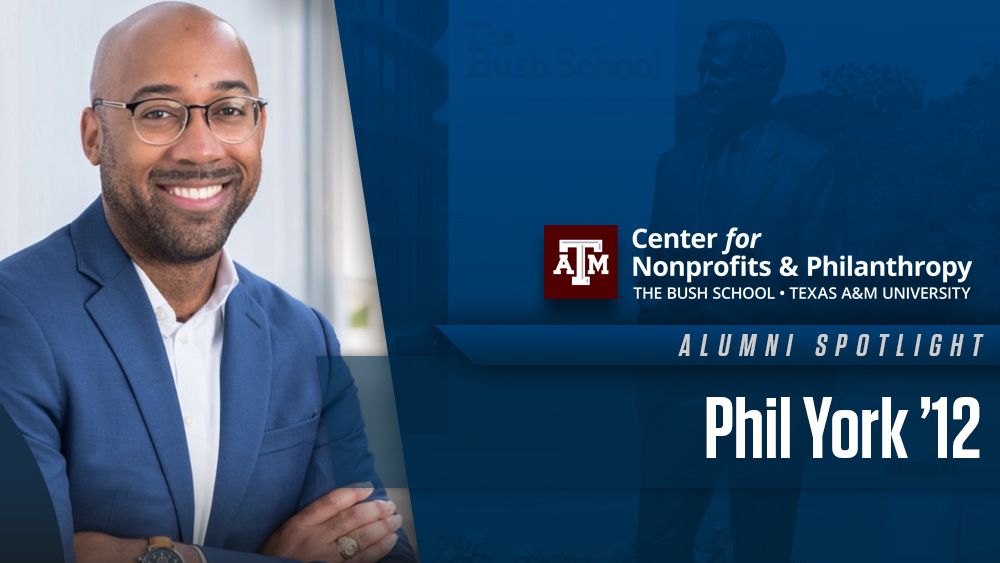
We are excited to highlight another alumnus who is making a difference in the nonprofit sector. Phil York graduated from the Bush School in 2012. He studied Nonprofit Management and Public Administration because he believes nonprofits are uniquely positioned to bring about positive change through the disciplined, studied approaches he learned while attending the Bush School. York’s nonprofit career was greatly shaped by his fundraising work with three different Habitat for Humanity affiliates. These positions showed him the value and power of engaging donors through unique experiences, such as having them work alongside a future homeowner to build a house that will soon become a home.
York’s advice to newer nonprofit leaders is not to fear discomfort. He believes that having a plan for your career is valuable, but if the path changes or varies, you must trust your instincts and listen for the “noble call” of public service. York is currently the Development Manager for the National Community Reinvestment Coalition in Washington, DC. Whoop!
- Name: Phil York
- Organization: National Community Reinvestment Coalition
- Title: Development Manager
What’s one of the more rewarding things about your job?
I connect donors to positive, community-changing programs on a daily basis.
Why did you choose to study Nonprofit Management or get a certificate?
I decided to study Nonprofit Management because I believed nonprofits are uniquely positioned in American communities to bring about positive change that other sectors cannot. However, this change can only happen through a disciplined, studied, and thoughtful approach that can be taught through a program such as the Bush School.
What nonprofit have you worked or volunteered with that impacted your academic or professional career?
Habitat for Humanity greatly shaped my nonprofit career. I served as a fundraiser at three Habitat affiliates and had the joy to see hard working families earn the American dream of homeownership. At Habitat, I learned that donor engagement is most powerful through experiences. There is no experience like watching a donor and future homeowner working on a house that will become a home. With a different chapter of my career, another organization that impacted my career growth was my time at the Kennedy Center. While there, I worked with multi-million dollar corporate donors, foundations and individuals during the organization’s first capital campaign. Similar to my Habitat days, it was a great experience to see some of America’s most influential philanthropist enjoy the arts…to see their gift in action…to see a child’s face light up during a theatre production…or to see their name become a permanent part of a marbled donor wall. Attention to detail, to know a donor’s preference and to anticipate that preference before it is said, was a critical skill I learned there.
What is one piece of advice you’d give to incoming students or recent graduates?
Have a plan but be at peace if your career does not go to plan. My career spans across the country. I worked in small nonprofits as one of few staff members. I also worked in one of the largest nonprofits in the United States. Did I plan that career path? No. But I had a compass that I built at the Bush School…which steered me in the path to answer that “noble call” of public service wherever I heard it. Today’s position may not be a dream job. But it may be the ideal position to learn skills, gain experience, network, and deploy programs that make your community a better place. Do not be afraid to be uncomfortable, to accept that job across the country, to apply for that job that scares you or to compete for a promotion. You are trained at one of the best schools in the country and able to do great things. Trust your instincts and be ok if you look up and find yourself in a role you never dreamed of.
What kind of professional development would be helpful in advancing your career?
These days, any webinars or 4 week certificate programs in crisis management or emergency management would be helpful. How to message and fundraise in a pandemic…how to lead teams during a pandemic…how to show appreciation and remain engaged in the lives of supporters during a pandemic could all be useful topics.
